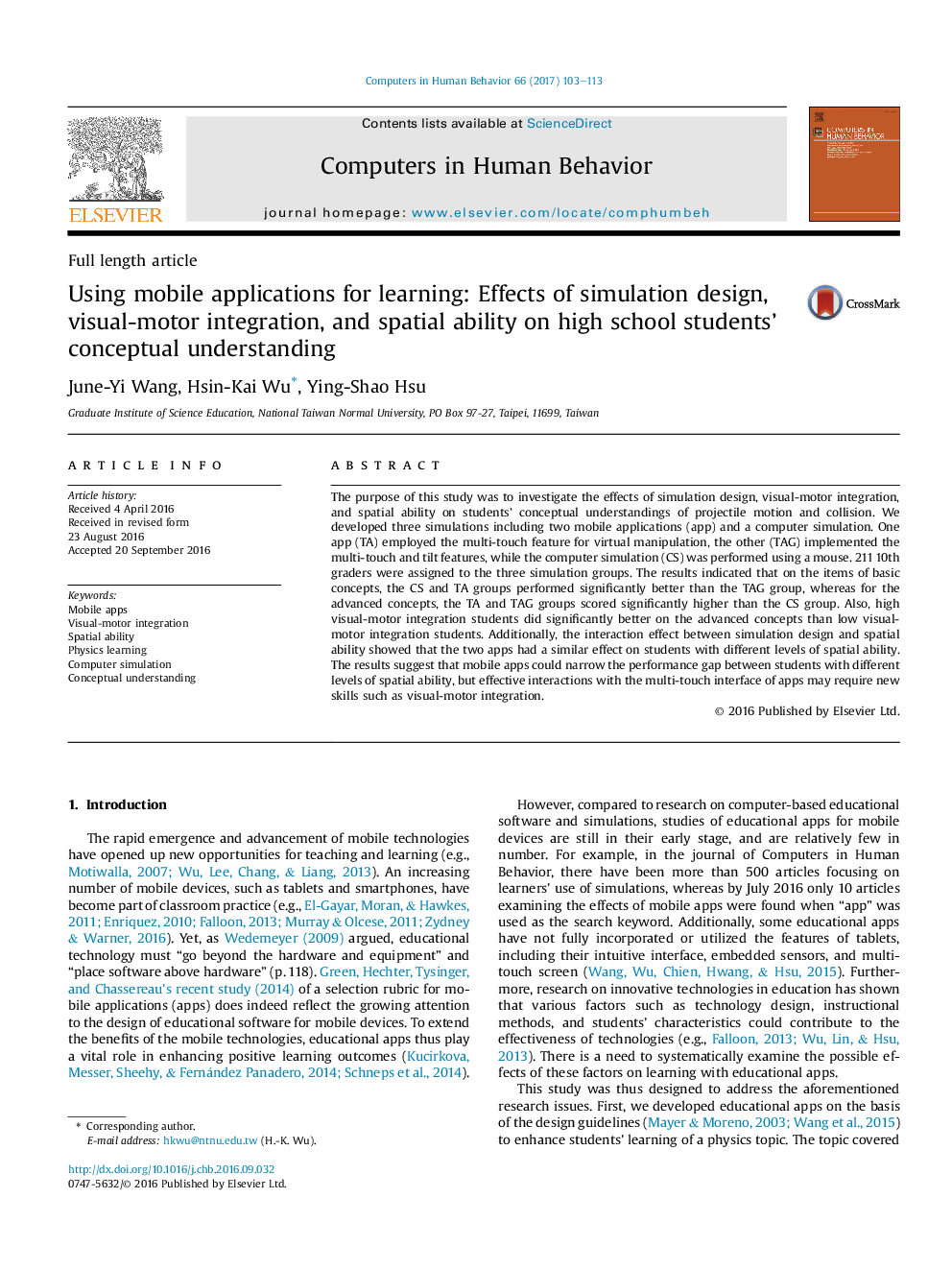| کد مقاله | کد نشریه | سال انتشار | مقاله انگلیسی | نسخه تمام متن |
|---|---|---|---|---|
| 4937729 | 1434625 | 2017 | 11 صفحه PDF | دانلود رایگان |
عنوان انگلیسی مقاله ISI
Using mobile applications for learning: Effects of simulation design, visual-motor integration, and spatial ability on high school students' conceptual understanding
ترجمه فارسی عنوان
استفاده از برنامه های کاربردی تلفن همراه برای یادگیری: تاثیر طراحی شبیه سازی، ادغام بصری-موتور و توانایی فضایی در درک مفهومی دانش آموزان دبیرستان
دانلود مقاله + سفارش ترجمه
دانلود مقاله ISI انگلیسی
رایگان برای ایرانیان
کلمات کلیدی
برنامه های موبایل یکپارچگی ویژوال موتور توانایی فضایی، یادگیری فیزیک، شبیه سازی رایانهای، درک مفهومی،
موضوعات مرتبط
مهندسی و علوم پایه
مهندسی کامپیوتر
نرم افزارهای علوم کامپیوتر
چکیده انگلیسی
The purpose of this study was to investigate the effects of simulation design, visual-motor integration, and spatial ability on students' conceptual understandings of projectile motion and collision. We developed three simulations including two mobile applications (app) and a computer simulation. One app (TA) employed the multi-touch feature for virtual manipulation, the other (TAG) implemented the multi-touch and tilt features, while the computer simulation (CS) was performed using a mouse. 211 10th graders were assigned to the three simulation groups. The results indicated that on the items of basic concepts, the CS and TA groups performed significantly better than the TAG group, whereas for the advanced concepts, the TA and TAG groups scored significantly higher than the CS group. Also, high visual-motor integration students did significantly better on the advanced concepts than low visual-motor integration students. Additionally, the interaction effect between simulation design and spatial ability showed that the two apps had a similar effect on students with different levels of spatial ability. The results suggest that mobile apps could narrow the performance gap between students with different levels of spatial ability, but effective interactions with the multi-touch interface of apps may require new skills such as visual-motor integration.
ناشر
Database: Elsevier - ScienceDirect (ساینس دایرکت)
Journal: Computers in Human Behavior - Volume 66, January 2017, Pages 103-113
Journal: Computers in Human Behavior - Volume 66, January 2017, Pages 103-113
نویسندگان
June-Yi Wang, Hsin-Kai Wu, Ying-Shao Hsu,
